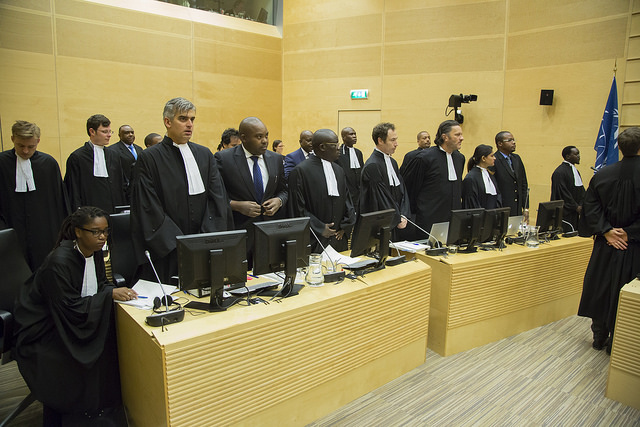DRC: ICC issues call for witnesses in current conflict
The International Criminal Court (ICC) prosecutor has called for witnesses regarding the violence in Goma and surrounding areas.
At least 2,000 bodies have been buried, and 900 more are in morgues and hospitals.
Some bodies still lie in the streets.
The prosecutor’s office is asking victims, witnesses, civil society, international organizations, and national authorities to provide evidence of the crimes.
“In October 2024, Prosecutor Karim A.A. Khan KC announced that the Office is renewing its investigative efforts in the DRC, with priority focus on alleged Rome Statute crimes committed in North Kivu since 1 January 2022. This investigation is active, and continues with urgency and focus,” the statement read.
The ICC investigation covers crimes in North Kivu since January 1, 2022. The inquiry focuses on clashes between the Congolese army and M23, as well as the violence in eastern DRC, especially in Goma.
The investigation targets anyone involved in the crimes, regardless of affiliation or nationality.
This could include Rwandan supporters of the M23, despite Rwanda not ratifying the ICC treaty.
The Court has jurisdiction over crimes committed in member states.
“Credible sources indicate that thousands of persons have been wounded and hundreds killed in and around Goma, including civilians and peacekeepers, following months of clashes between the Armed Forces of the Democratic Republic of the Congo and the March 23 Movement (“M23”) and their allies,” the ICC statement read.
The rebels are backed by some 4,000 troops from neighbouring Rwanda, according to U.N. experts.
They are the most potent of the more than 100 armed groups active in Congo’s east, which holds vast deposits critical to much of the world’s technology.
Unlike in 2012, when the rebels first captured Goma but held it for only a short time, analysts say the M23 is now eyeing political power and eager to show it can govern.
Though they declared a unilateral ceasefire after capturing Goma as Congolese troops melted away and claimed they had stopped grabbing more land, the rebels on Wednesday seized a town in the mineral-rich region that holds resources critical to much of the world’s technology.
Congo’s government has dismissed the ceasefire as “false communication,” and the United Nations has noted reports of heavy fighting with Congolese forces in other parts of the country’s east.
The U.N. and aid groups have expressed concern about the safety of the displaced people in Goma.
Before it was captured by the rebels, the city was a critical humanitarian hub that hosted many of the more than 6 million people displaced by conflict in the region.
One of those at the rally Thursday, Emmanuel Kakule, a Goma resident, said he is still worried about the situation in Goma.
“I came to listen to their project,” the 26-year-old said. “I don’t know if I’m convinced, we’re still afraid.”
Meanwhile, Malawi President Lazarus Chakwera, said that he’s asked the commander of his country’s peacekeepers in eastern Congo to begin preparations for their withdrawal.
Malawian troops are part of a regional peacekeeping force supporting Congolese army in the region.
At least 3 Malawian troops and 14 South African soldiers also part of the force have been killed in the fighting.
Chakwera said on Wednesday that the withdrawal was “to honor the declaration of a ceasefire” by the rebels and to pave the way for negotiations and a lasting peace. He did not give a timeframe for the Malawian troops’ withdrawal.
Africanews/Hauwa M.


Comments are closed.